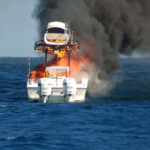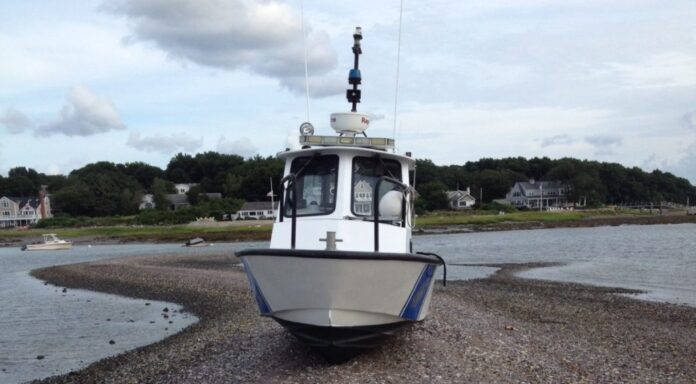Before heading out for an adventure on the water, make sure you have the suitable protection in place if an accident happens. In 2014, the United States Coast Guard (USCG) reported Florida had $7,386,874 in boat damages.
“At GreatFlorida Insurance, we can customize your boat insurance policy to fit your specific watercraft lifestyle,” says Dustyn Shroff, Vice President of GreatFlorida Insurance, Florida’s largest independent boat insurance agency.
Listed below are some of the most common causes of boat damage and how you can prevent them.
Striking a submerged object – It is very difficult to avoid striking a submerged object such as a log because it can be so hard to see. Drought conditions and heavy rains can contribute to floating debris in the water. If you hit a submerged object, stop and check the bilge for leaks. Once you arrive at the dock, do another more thorough check for damage.
Grounding – Grounding can be prevented by keeping up to date and accurate charts as well as a depth finder or depth sounder. Once you run aground check for leaks. Next, stop the engine and lift the outdrive. Powering up can result in more damage to your vessel. Shift weight to the area farthest away from the point of impact and try shoving off with a paddle or boathook. If this does not work, it is best to wait for the tide or a tow to get you back in the water.
Storms – Protecting your boat from bad weather often depends on the amount of advanced warning you are given. “Storms are common in Florida, so it is best to have a plan of action in place before a storm hits,” recommends Buck of GreatFlorida Insurance, Florida’s top independent boat insurance agency.
Everything removable should come off the boat or be secured such as, canvas, sails, radios, dinghies, cushions or life vests. Shut off and disconnect all electrical systems and remove your battery. Make sure all openings are closed and sealed.
Sinking – Bad weather, grounding and strikes can cause your boat to take on water. Holes and damage can also be responsible. Regular maintenance and inspections will help keep the water out. Examine drains and scuppers before setting out and during your trip. Confirm the bilge pump is fully operational and installed at the lowest part of the bilge so it can detect the water level and turn on when necessary. Also, make sure the battery is fully charged.
Fire – Most boat fires are fuel-related or caused by electrical issues. A boat fire can result in a total loss. Boating Magazine reports boat fires are especially dangerous because, “fiberglass burns vigorously while emitting toxic fumes.” Avoid a lapse in maintenance and check your fuel-system regularly. Faulty wiring or corrosion in your wires should be repaired right away. Always keep the proper number of working fire extinguishers on board.
Collision – Unlike the roads, the water has no marked lanes or stoplights. It is important to be vigilant while driving a boat. The best way to avoid a collision with another boat is to learn International and Inland Navigational Rules. Watch your speed around other boats, keep watch on traffic around you including blind spots and make course changes early.
GreatFlorida Insurance can customize a boat insurance policy to protect your vessel and extend to your boating equipment in and out of the water. Give us a call today.




